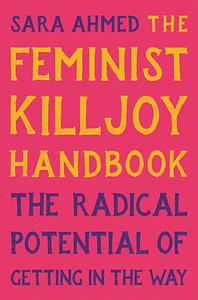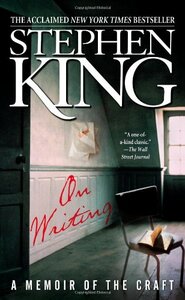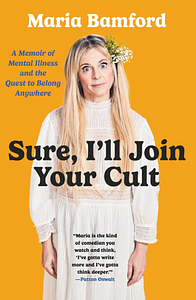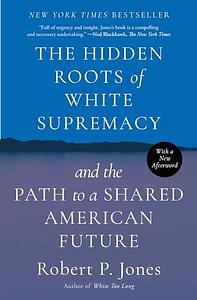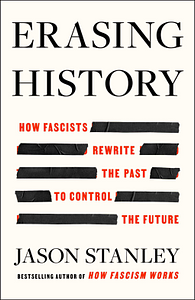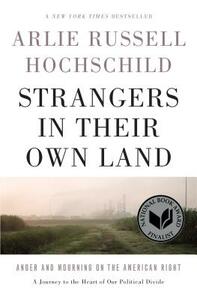Take a photo of a barcode or cover
the_grimm_reader's Reviews (242)
A Goodreads friend read this and it sounded like the kind of thing I’d eat up—clever synopsis, the right zing, and as luck would have it, it was sitting pretty at my local library. Sometimes I pick a book to stretch my worldview. Other times, I knowingly crawl into the echo chamber, light a candle, and bathe in the warm glow of my own confirmation bias. This was supposed to be the latter—a soothing soak in familiar ideology. A nice little bias bubble bath.
But oddly, it didn’t land.
Not because I disagreed. Quite the opposite. Page after page, I was on the exact same page as the author. (Which, yes, gets painful. Ever try nodding in agreement for 300 pages straight?) I kept zoning out—not because the book isn’t smart or well-written, but because it’s so aligned with my operating system that it might as well have been a checklist of my own internal monologue. Being a feminist killjoy isn’t a revelation to me—it’s a lifestyle. A default setting. Honestly, it’s so familiar, it kind of put me to sleep.
What might have been more “radical” for me at this point? A book making a strong case for willful ignorance. A celebration of selfishness, apathy, and capitalist cruelty with a side of "let the world burn, I’m having brunch." That would've gotten my blood boiling, and at least engaged me through sheer disgust. But instead, I found myself trudging through a handbook I didn’t need, for a job I already have.
So yeah, two stars—not because Ahmed missed the mark, but because I’ve already tattooed it on my soul. She’s preaching to the choir, and the choir’s tired.
But oddly, it didn’t land.
Not because I disagreed. Quite the opposite. Page after page, I was on the exact same page as the author. (Which, yes, gets painful. Ever try nodding in agreement for 300 pages straight?) I kept zoning out—not because the book isn’t smart or well-written, but because it’s so aligned with my operating system that it might as well have been a checklist of my own internal monologue. Being a feminist killjoy isn’t a revelation to me—it’s a lifestyle. A default setting. Honestly, it’s so familiar, it kind of put me to sleep.
What might have been more “radical” for me at this point? A book making a strong case for willful ignorance. A celebration of selfishness, apathy, and capitalist cruelty with a side of "let the world burn, I’m having brunch." That would've gotten my blood boiling, and at least engaged me through sheer disgust. But instead, I found myself trudging through a handbook I didn’t need, for a job I already have.
So yeah, two stars—not because Ahmed missed the mark, but because I’ve already tattooed it on my soul. She’s preaching to the choir, and the choir’s tired.
This was my first Michael Shermer book, and I’ve already got a small stack queued up. After reading Sapiens last year, I found myself hungry for more books that peel back the layers of what it means to be human—where we come from, why we behave the way we do, and how we’ve convinced ourselves of certain stories along the way. That curiosity led me to The Science of Good and Evil, and Shermer didn’t disappoint.
In a deeply analytical (and yes, heady) way, Shermer dives into a question that’s nagged me for as long as I can remember: Why do some people seem naturally inclined toward kindness, fairness, and empathy, while others choose cruelty, violence, and selfishness? Since childhood, I’ve (perhaps arrogantly) trusted my own moral compass—I’ve never liked bullies, I offer kindness first, and I’ve instinctively sided with the underdog. That’s not a badge I wear—it’s just felt… natural.
What’s always puzzled me is why that isn’t universal. Why do we seem to need divine permission—or threat—to treat each other decently? Is there something broken in our species that needs commandments, kings, or gods to tell us how to live? Shermer gets right into this territory and, using the tools of science and psychology, explores the gray area between what we label “good” and “evil.” His case is compelling: not only are good and evil more fluid than religious dogma suggests, but the gods themselves—across cultures—have often inspired or justified violence rather than compassion.
Two concepts Shermer introduces—fuzzy logic and provisional ethics—really stuck with me. These ideas accept that moral decisions are rarely black and white. They suggest that ethics should shift with context, experience, and understanding. To me, this dovetails beautifully with the secular Buddhist perspective I often lean on. While Shermer pulls no punches about religion, Buddhism is mostly spared his criticism—and I found many of his arguments aligning surprisingly well with teachings like those found in the Heart Sutra.
Did I find the answer to why people do good or evil? Not exactly. But I found something better: a framework for understanding how our moral instincts evolved, how they succeed (and fail) in a complex world, and how civilization itself might be part of the problem. Shermer suggests that while cooperation and kindness make sense at a small scale—in families, tribes, or villages—our modern systems have grown too large, too fast. We’ve built structures that prioritize acquisition over empathy, and that rapid expansion has outpaced our evolutionary wiring.
If you’re interested in ethics, morality, or the science of why we are the way we are—this is a thoughtful, thought-provoking read that might leave you asking even bigger questions. For me, it confirmed what I’ve long felt: kindness may be natural, but sustaining it at scale is one of humanity’s greatest challenges.
In a deeply analytical (and yes, heady) way, Shermer dives into a question that’s nagged me for as long as I can remember: Why do some people seem naturally inclined toward kindness, fairness, and empathy, while others choose cruelty, violence, and selfishness? Since childhood, I’ve (perhaps arrogantly) trusted my own moral compass—I’ve never liked bullies, I offer kindness first, and I’ve instinctively sided with the underdog. That’s not a badge I wear—it’s just felt… natural.
What’s always puzzled me is why that isn’t universal. Why do we seem to need divine permission—or threat—to treat each other decently? Is there something broken in our species that needs commandments, kings, or gods to tell us how to live? Shermer gets right into this territory and, using the tools of science and psychology, explores the gray area between what we label “good” and “evil.” His case is compelling: not only are good and evil more fluid than religious dogma suggests, but the gods themselves—across cultures—have often inspired or justified violence rather than compassion.
Two concepts Shermer introduces—fuzzy logic and provisional ethics—really stuck with me. These ideas accept that moral decisions are rarely black and white. They suggest that ethics should shift with context, experience, and understanding. To me, this dovetails beautifully with the secular Buddhist perspective I often lean on. While Shermer pulls no punches about religion, Buddhism is mostly spared his criticism—and I found many of his arguments aligning surprisingly well with teachings like those found in the Heart Sutra.
Did I find the answer to why people do good or evil? Not exactly. But I found something better: a framework for understanding how our moral instincts evolved, how they succeed (and fail) in a complex world, and how civilization itself might be part of the problem. Shermer suggests that while cooperation and kindness make sense at a small scale—in families, tribes, or villages—our modern systems have grown too large, too fast. We’ve built structures that prioritize acquisition over empathy, and that rapid expansion has outpaced our evolutionary wiring.
If you’re interested in ethics, morality, or the science of why we are the way we are—this is a thoughtful, thought-provoking read that might leave you asking even bigger questions. For me, it confirmed what I’ve long felt: kindness may be natural, but sustaining it at scale is one of humanity’s greatest challenges.
There’s something chilling about this book’s title—An American Insurrection—especially in the shadow of January 6th. At first glance, it could just as easily be describing the blood-streaked halls of the U.S. Capitol, echoing with Confederate chants and white rage. But William Doyle isn’t writing about 2021. He’s pulling us back to 1962—to Oxford, Mississippi—where another mob, another banner, and another violent insurrection rose up to defy the United States Constitution.
This book is a mirror with a long memory.
James Meredith wanted what should never have required federal troops: to attend a public university as a U.S. citizen. What followed was a modern-day battlefield—a siege fueled by hate, ignorance, and a toxic blend of state power and vigilante violence. The streets turned to smoke and blood as American citizens, drunk on delusion, aimed rifles at federal marshals under the full sanction of local government.
Reading this book is hard. The racism isn’t subtle. It’s searing, loud, and naked. The slurs are not softened. The cruelty is not hidden. That makes it important.
This isn’t just history—it’s diagnosis. America did not reckon honestly with its sickness after the Civil War. It patched the wound and moved on, but never cleaned the infection. And that infection festers. You see it waving flags at the Capitol. You see it shouting “take our country back.” You hear it in the same accents, see it in the same faces, smell the same entitlement.
Doyle’s work is meticulously documented, but never cold. There’s real pain in these pages. Rage. Grief. Truth. He reconstructs a moment this nation tested itself—and reveals how fragile progress remains when evil wears a flag and calls itself tradition.
This is not an easy book. But it is essential. It tells the truth when most would rather forget.
Read this book. Then look around. Ask yourself if the insurrection ever really ended—or if it simply changed costumes. We are not past this. We are in it.
This book is a mirror with a long memory.
James Meredith wanted what should never have required federal troops: to attend a public university as a U.S. citizen. What followed was a modern-day battlefield—a siege fueled by hate, ignorance, and a toxic blend of state power and vigilante violence. The streets turned to smoke and blood as American citizens, drunk on delusion, aimed rifles at federal marshals under the full sanction of local government.
Reading this book is hard. The racism isn’t subtle. It’s searing, loud, and naked. The slurs are not softened. The cruelty is not hidden. That makes it important.
This isn’t just history—it’s diagnosis. America did not reckon honestly with its sickness after the Civil War. It patched the wound and moved on, but never cleaned the infection. And that infection festers. You see it waving flags at the Capitol. You see it shouting “take our country back.” You hear it in the same accents, see it in the same faces, smell the same entitlement.
Doyle’s work is meticulously documented, but never cold. There’s real pain in these pages. Rage. Grief. Truth. He reconstructs a moment this nation tested itself—and reveals how fragile progress remains when evil wears a flag and calls itself tradition.
This is not an easy book. But it is essential. It tells the truth when most would rather forget.
Read this book. Then look around. Ask yourself if the insurrection ever really ended—or if it simply changed costumes. We are not past this. We are in it.
Some books bleed. Some breathe. Some whisper secrets you didn’t know you’d been dying to hear. On Writing does all three.
This is no mystical, holier-than-thou dispatch from the summit of literary fame. No, this is a rough-cut gem, cracked and warm, drawn straight from memory and muscle. King walks us through the haunted hallways of his youth, his addiction, and the quiet, daily devotion of building worlds from scratch—one honest word at a time.
What makes this book special is not just King’s gift for storytelling (though that’s here in spades), but his utter lack of pretense. Writing, he tells us, is not divine intervention. It’s a toolbox. It’s rhythm and revision. It's love. It’s work.
And when the van hits him—and it does—King brings us into the pain, the crawl back to the page, the fragile thread of life stitched together by the act of writing.
If you write—read this. If you read—read this. If you’ve ever felt the call to create something from your own dark corners, then open this book, turn the page, and follow the voice that’s been whispering behind you.
This is no mystical, holier-than-thou dispatch from the summit of literary fame. No, this is a rough-cut gem, cracked and warm, drawn straight from memory and muscle. King walks us through the haunted hallways of his youth, his addiction, and the quiet, daily devotion of building worlds from scratch—one honest word at a time.
What makes this book special is not just King’s gift for storytelling (though that’s here in spades), but his utter lack of pretense. Writing, he tells us, is not divine intervention. It’s a toolbox. It’s rhythm and revision. It's love. It’s work.
And when the van hits him—and it does—King brings us into the pain, the crawl back to the page, the fragile thread of life stitched together by the act of writing.
If you write—read this. If you read—read this. If you’ve ever felt the call to create something from your own dark corners, then open this book, turn the page, and follow the voice that’s been whispering behind you.
I honestly loved this book. Before I read it, I was wholly unfamiliar with Maria Bamford, but by the time I finished I was completely invested in what she has to say. Bamford doesn’t ask for permission—and she sure as hell doesn’t wait for your comfort.
This book is a raw, disarming dissection of mental illness, identity, performance, recovery, and what it means to exist on the edge of everything. It’s not some polished trauma memoir. It’s fractured, hilarious, chaotic, and absolutely sincere (which is what I loved about it). Like Bamford herself, it refuses to follow any expected script, and it had me laughing out loud through my tears more than once, crying because she'd plucked some painful truth strings.
She gives you the full inventory—hospital visits, OCD spirals, bipolar chaos, self-doubt, stand-up gigs, oversharing, under-sleeping, strange social rituals, and the aching hunger to connect… all delivered with the kind of unfiltered vulnerability most people spend a lifetime avoiding.
It’s not always easy to read—but that’s kind of the point. This isn’t inspiration-porn. It’s not a story of “overcoming.” It’s a document of endurance. A chronicle of someone still here, still trying, still laughing through the fog, someone just trying to be okay in a world that is often not okay.
If you’ve ever felt out of sync with the world, like your brain was tuned to a different frequency, this book won’t fix you—but it will feel like company. Real company. And maybe that’s enough.
This book is a raw, disarming dissection of mental illness, identity, performance, recovery, and what it means to exist on the edge of everything. It’s not some polished trauma memoir. It’s fractured, hilarious, chaotic, and absolutely sincere (which is what I loved about it). Like Bamford herself, it refuses to follow any expected script, and it had me laughing out loud through my tears more than once, crying because she'd plucked some painful truth strings.
She gives you the full inventory—hospital visits, OCD spirals, bipolar chaos, self-doubt, stand-up gigs, oversharing, under-sleeping, strange social rituals, and the aching hunger to connect… all delivered with the kind of unfiltered vulnerability most people spend a lifetime avoiding.
It’s not always easy to read—but that’s kind of the point. This isn’t inspiration-porn. It’s not a story of “overcoming.” It’s a document of endurance. A chronicle of someone still here, still trying, still laughing through the fog, someone just trying to be okay in a world that is often not okay.
If you’ve ever felt out of sync with the world, like your brain was tuned to a different frequency, this book won’t fix you—but it will feel like company. Real company. And maybe that’s enough.
The Hidden Roots of White Supremacy and the Path to a Shared American Future
Robert P. Jones, Robert P. Jones
There are books that disturb the dust politely—careful in their sweep, gentle in their critique. This is not that book. Robert P. Jones digs with a sharper tool.
The Hidden Roots of White Supremacy doesn’t just tug at the hem of American mythology—it rips it wide open and lays the bones bare. The sacred lies we tell ourselves—about liberty, about faith, about founding fathers and fragile flags—are unspooled, examined, and found wanting.
Jones is methodical, theological, historical—and unforgiving. But here’s the thing: The horror isn’t what he reveals. It’s what we already knew. It’s what we’ve buried. It’s the gravestones we picnic on, the blood beneath our cathedrals, the names carved into history with stolen hands and hollow prayers.
Jones writes with a steady hand, but if you’re honest, the book will make your stomach churn—not because of hyperbole, but because of clarity. This isn’t ancient history. It’s modern policy. It’s voter suppression, stolen land acknowledgments, church pews filled with people who preach love but practice hierarchy.
The “Path to a Shared American Future” feels like the subtitle’s dream—but make no mistake: the path is uphill, thorn-choked, and littered with the corpses of reformers who dared to hope too hard.
If you read this book looking for comfort, you’ll be disappointed. If you read it looking for easy solutions, you’ll be gutted. But if you read it to remember, to bear witness, to reckon, and to resist the seduction of American amnesia—then it may just do its job. Because forgetting is the fuel of supremacy. And remembering, grim as it is, might be the only holy work left to do.
The Hidden Roots of White Supremacy doesn’t just tug at the hem of American mythology—it rips it wide open and lays the bones bare. The sacred lies we tell ourselves—about liberty, about faith, about founding fathers and fragile flags—are unspooled, examined, and found wanting.
Jones is methodical, theological, historical—and unforgiving. But here’s the thing: The horror isn’t what he reveals. It’s what we already knew. It’s what we’ve buried. It’s the gravestones we picnic on, the blood beneath our cathedrals, the names carved into history with stolen hands and hollow prayers.
Jones writes with a steady hand, but if you’re honest, the book will make your stomach churn—not because of hyperbole, but because of clarity. This isn’t ancient history. It’s modern policy. It’s voter suppression, stolen land acknowledgments, church pews filled with people who preach love but practice hierarchy.
The “Path to a Shared American Future” feels like the subtitle’s dream—but make no mistake: the path is uphill, thorn-choked, and littered with the corpses of reformers who dared to hope too hard.
If you read this book looking for comfort, you’ll be disappointed. If you read it looking for easy solutions, you’ll be gutted. But if you read it to remember, to bear witness, to reckon, and to resist the seduction of American amnesia—then it may just do its job. Because forgetting is the fuel of supremacy. And remembering, grim as it is, might be the only holy work left to do.
Jason Stanley’s Erasing History is yet another sharp, well-researched contribution to the growing library of fascist studies—but this one drills deeper into a chilling, central truth: the first battle fascists fight is always against knowledge itself.
I’ve read many books about the rise, reign, and return of fascism, but few have illuminated this specific, devastating tactic so clearly—the manipulation, erasure, and weaponization of information. Stanley doesn’t mince words. He lays bare how fascists target facts, reason, science, education, and historical record in a relentless campaign to control the public mind. And he shows how this isn’t just theoretical—it’s happening now, in real time.
Published on the cusp of a pivotal U.S. election, Erasing History reads like a darkly prophetic playbook. I wasn’t shocked by how much of it mirrors what we’re seeing unfold today—but I was outraged. Outraged that those who claim to cherish liberty have embraced a movement so antithetical to it. Outraged by the willful ignorance, the gleeful revisionism, the absolute absence of pushback against lies that corrode the nation’s moral core.
Fascism thrives not only on violence, but on narrative control—a narrative designed to erase nuance, vilify difference, and awaken the darkest instincts in the human soul. Stanley exposes how this rewriting of reality enables a dangerous kind of false freedom: one where truth becomes optional and democracy cannot endure.
True freedom demands honest reckoning—with both our triumphs and our failures. We cannot defend what we refuse to see clearly. And if we lose the ability to tell the truth, we lose the republic.
This book is essential. Not just for those studying history, but for anyone still committed to preserving a future rooted in justice, integrity, and shared reality.
I’ve read many books about the rise, reign, and return of fascism, but few have illuminated this specific, devastating tactic so clearly—the manipulation, erasure, and weaponization of information. Stanley doesn’t mince words. He lays bare how fascists target facts, reason, science, education, and historical record in a relentless campaign to control the public mind. And he shows how this isn’t just theoretical—it’s happening now, in real time.
Published on the cusp of a pivotal U.S. election, Erasing History reads like a darkly prophetic playbook. I wasn’t shocked by how much of it mirrors what we’re seeing unfold today—but I was outraged. Outraged that those who claim to cherish liberty have embraced a movement so antithetical to it. Outraged by the willful ignorance, the gleeful revisionism, the absolute absence of pushback against lies that corrode the nation’s moral core.
Fascism thrives not only on violence, but on narrative control—a narrative designed to erase nuance, vilify difference, and awaken the darkest instincts in the human soul. Stanley exposes how this rewriting of reality enables a dangerous kind of false freedom: one where truth becomes optional and democracy cannot endure.
True freedom demands honest reckoning—with both our triumphs and our failures. We cannot defend what we refuse to see clearly. And if we lose the ability to tell the truth, we lose the republic.
This book is essential. Not just for those studying history, but for anyone still committed to preserving a future rooted in justice, integrity, and shared reality.
I’ve listened to countless interviews with Anne Applebaum over the years and have grown to truly value her perspective. She’s sharp, balanced, deeply researched, and unflinching—and I expected her writing to be the same. When I saw that my local library had several of her books, I grabbed Autocracy, Inc., one of her newer releases. And as expected, Applebaum did not disappoint.
We’re living in an era where the worst actors on the world stage have studied the past, learned each other’s playbooks, and linked arms across borders to suppress liberty and democracy. In Autocracy, Inc., Applebaum lays it all out—methodically, clearly, and with devastating precision. This isn’t a book of vague warnings. It’s a deeply sourced, razor-sharp account of how authoritarian leaders—dictators, oligarchs, monarchs, corporate elites, and corrupt presidents—collaborate in the shadows to protect their wealth, dodge consequences, and tighten their grip on power.
These autocrats aren’t working in isolation. Applebaum reveals how they learn from one another, offer each other safe havens, manipulate global institutions, and build networks of influence that operate well outside the lanes of law the rest of us are expected to follow. It's a club with no loyalty to country—just to control.
Applebaum doesn’t pull punches or sugarcoat the stakes. This isn’t a feel-good read, nor should it be. It’s an urgent dismantling of the myth that authoritarianism is confined to the past or to far-off places. She makes it painfully clear: this is happening now, and it’s closer to home than most want to admit.
What impressed me most is that she doesn’t leave the reader in despair. Applebaum offers direction—what vigilance looks like, where resistance can begin, and why truth-telling and international solidarity still matter. It’s not just a diagnosis; it’s a call to awareness and action.
If you want to understand the shape of modern tyranny, both abroad and at home, this book is essential. Read it soon. Then pass it on. The autocrats are counting on our ignorance—and Autocracy, Inc. tears away their curtain.
We’re living in an era where the worst actors on the world stage have studied the past, learned each other’s playbooks, and linked arms across borders to suppress liberty and democracy. In Autocracy, Inc., Applebaum lays it all out—methodically, clearly, and with devastating precision. This isn’t a book of vague warnings. It’s a deeply sourced, razor-sharp account of how authoritarian leaders—dictators, oligarchs, monarchs, corporate elites, and corrupt presidents—collaborate in the shadows to protect their wealth, dodge consequences, and tighten their grip on power.
These autocrats aren’t working in isolation. Applebaum reveals how they learn from one another, offer each other safe havens, manipulate global institutions, and build networks of influence that operate well outside the lanes of law the rest of us are expected to follow. It's a club with no loyalty to country—just to control.
Applebaum doesn’t pull punches or sugarcoat the stakes. This isn’t a feel-good read, nor should it be. It’s an urgent dismantling of the myth that authoritarianism is confined to the past or to far-off places. She makes it painfully clear: this is happening now, and it’s closer to home than most want to admit.
What impressed me most is that she doesn’t leave the reader in despair. Applebaum offers direction—what vigilance looks like, where resistance can begin, and why truth-telling and international solidarity still matter. It’s not just a diagnosis; it’s a call to awareness and action.
If you want to understand the shape of modern tyranny, both abroad and at home, this book is essential. Read it soon. Then pass it on. The autocrats are counting on our ignorance—and Autocracy, Inc. tears away their curtain.
A Personal Reflection from Southwest Louisiana
I’m from the part of Louisiana this book focuses on, and I can say with confidence that Hochschild captures a lot of what makes this region—and its people—so complex. While I didn’t grow up with conservative values myself, many around me did. I’ve lived alongside the communities Hochschild writes about, and I recognize the pride, resilience, and contradictions she documents so well.
What sets Strangers in Their Own Land apart is Hochschild’s willingness to listen. She approaches her subjects with curiosity and respect, not judgment, even as she wrestles with viewpoints very different from her own. Her concept of the “empathy wall” is a powerful one—and from my vantage point, it’s spot on.
Published just before the 2016 election, this book now reads as incredibly prophetic. It offers a clear and deeply researched look at how America became so divided—not just politically, but emotionally and culturally. Hochschild zeroes in on the tension between economic hardship, environmental risk, and deep-rooted distrust of government, and she brings it all to life through the personal stories of real people.
Reading this as someone from the region, it deepened my understanding of the forces at play here. It also reminded me how important it is to move beyond stereotypes and truly try to understand where people are coming from—even when we disagree.
If you want to understand how we got here, this is essential reading.
I’m from the part of Louisiana this book focuses on, and I can say with confidence that Hochschild captures a lot of what makes this region—and its people—so complex. While I didn’t grow up with conservative values myself, many around me did. I’ve lived alongside the communities Hochschild writes about, and I recognize the pride, resilience, and contradictions she documents so well.
What sets Strangers in Their Own Land apart is Hochschild’s willingness to listen. She approaches her subjects with curiosity and respect, not judgment, even as she wrestles with viewpoints very different from her own. Her concept of the “empathy wall” is a powerful one—and from my vantage point, it’s spot on.
Published just before the 2016 election, this book now reads as incredibly prophetic. It offers a clear and deeply researched look at how America became so divided—not just politically, but emotionally and culturally. Hochschild zeroes in on the tension between economic hardship, environmental risk, and deep-rooted distrust of government, and she brings it all to life through the personal stories of real people.
Reading this as someone from the region, it deepened my understanding of the forces at play here. It also reminded me how important it is to move beyond stereotypes and truly try to understand where people are coming from—even when we disagree.
If you want to understand how we got here, this is essential reading.
